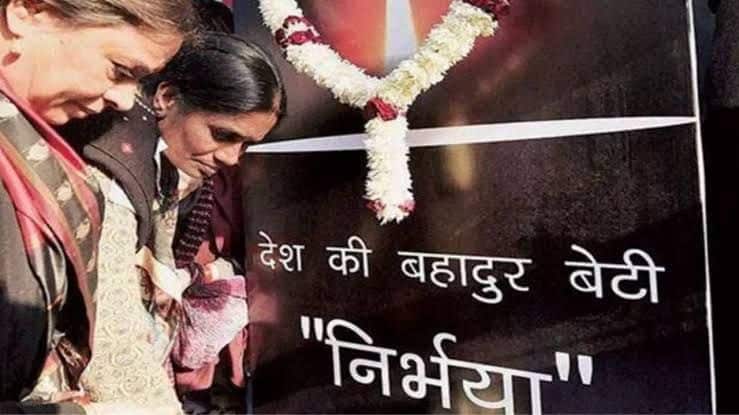
ABOUT THE NIRBHAYA CASE VERDICT
The vicious attack and rape that happened on December 16, 2012, known as the nirbhaya case were part of the Delhi gang murder and rape incident of 2012. A twenty-three-year-old lady was violently attacked, gang-raped, and mistreated aboard a private bus that she and her male partner had boarded.
When the woman went through a rape and her friend was beaten, there were six men on the bus, including the driver. She was taken to a Singaporean hospital for emergency care eleven days after the attack. Sadly, after receiving care for two days, she passed away. This tragedy received widespread international media coverage and was widely condemned in India and other countries.
Nirbhaya case summary
Nirbhaya case summary Facts:
- On a chilly December 16, 2012, a woman of 23 years old went to the cinema with her friend. When the play ended at 8:30 p.m., they took an auto to the Munirka bus terminal, where they boarded a white chartered bus bound for Dwarka.
- The bus’s lights suddenly went out while there were already six people onboard;
- Three men were abusing the woman’s partner; this led to a brawl in which her friend was brutally assaulted by an iron rod.
- The six accused in this case were Akshay Thakur, Pawan Gupta, Vinay Sharma, Mukesh Singh, Ram Singh, and the Juvenile in Conflict with Law (Identity protected).
- After robbing the couple, the accused took the woman to the back of the bus where they savagely raped her once more.
Nirbhaya case summary Issues:
- Are the accusations made against the convicted parties genuine under Sections 120(B) of the Indian Penal Code (Criminal conspiracy), Section 365 IPC (kidnapping or abduction), Section 366 IPC, Section 307 IPC (Attempt to murder), Section 376(2)(g) IPC (Gang rape), Section 396 IPC (Dacoity with murder), Section 302 IPC (Murder), Section 395 IPC (Punishment for dacoity), Section 397 IPC (Robbery or Dacoity attempting to cause death or grievous hurt), Section 201 IPC (Disappearing evidence of the Offense), and Section 412 IPC (Offense against Property) valid?
- Is it possible for a minor to be judged guilty of the same crimes as an adult?
- Will they receive a life term in prison or the death penalty?
Arguments by the Petitioner in the nirbhaya case:
- The woman lost a substantial amount of blood during the transfusion, which could have an impact on the DNA profile, according to the learned council, which contends that the judges shouldn’t base their decision only on the victim’s blood report and DNA.
- The victim’s horrific conditions prevented her from making a declaration of death, according to the learned council.
- Two convicted men, Vinay Sharma and Pawan Kumar, maintain that they were not on the bus when the crime occurred and that their family supported them.
- Because of this, it is always preferable to award death in extreme situations rather than life in jail. The educated council additionally claims that since the victim’s uterus was unharmed, the iron rod was not employed to insert it into her virginal. Since the penetration, if it happened, would damage the uterus first and then the intestine, an iron rod was not utilized.
Arguments by the Respondent in the nirbhaya case:
- The council concluded that, because this case is among the “rarest of the rarest cases,” the death penalty is the best option.
- The council said that there is enough evidence to punish the accused, and that the minor accused should be punished with the other four accused parties due to the seriousness of the offense and the fact that the youngster should not be given any leniency.
Nirbhaya case verdict:
- The nirbhaya case verdict was given on March 19, 2020.
- The nirbhaya case verdict was given by a five-judge bench comprising Justice NV Ramana, JusticeArun Mishra,Justice RF Nariman, JusticeR. Banumathi, and JusticeAshok Bhushan.
- In the Nirbhaya Case, the Supreme Court maintained the Delhi High Court’s sentence decision, declaring that the crime was a “rarest of the rare” and that it had shocked the conscience of the country. The Supreme Court denied the four convicted men’s request for compassion and maintained their death sentences on March 20, 2020, at six in the morning.
Amendments in the Criminal Justice System
- The Nirbhaya rape case brought to light several anomalies in the legal system and led to significant improvements.
- The Criminal Amendment Act of 2013 (Anti-Rape Act) introduced new charges such as stalking, acid attacks, and voyeurism to the definition of rape.
- The minimum sentence for rape was increased, especially when the victim passed away or was left in a vegetative state. It was determined that the victim’s attributes were irrelevant to the allegations of rape.
- Furthermore, the Juvenile Justice Act of 2015 reduced the age at which violent crimes including rape can be prosecuted as adults from 18 to 16, addressing the issue of juvenile offenders.
For any latest news, legal topics, judiciary exams notifications, patterns, etc watch Jyoti Judiciary’s YouTube channel for legal videos for any updates at https://youtube.com/@jyotijudiciarycoaching4852?si=2cwubh9d2A9urwJf


